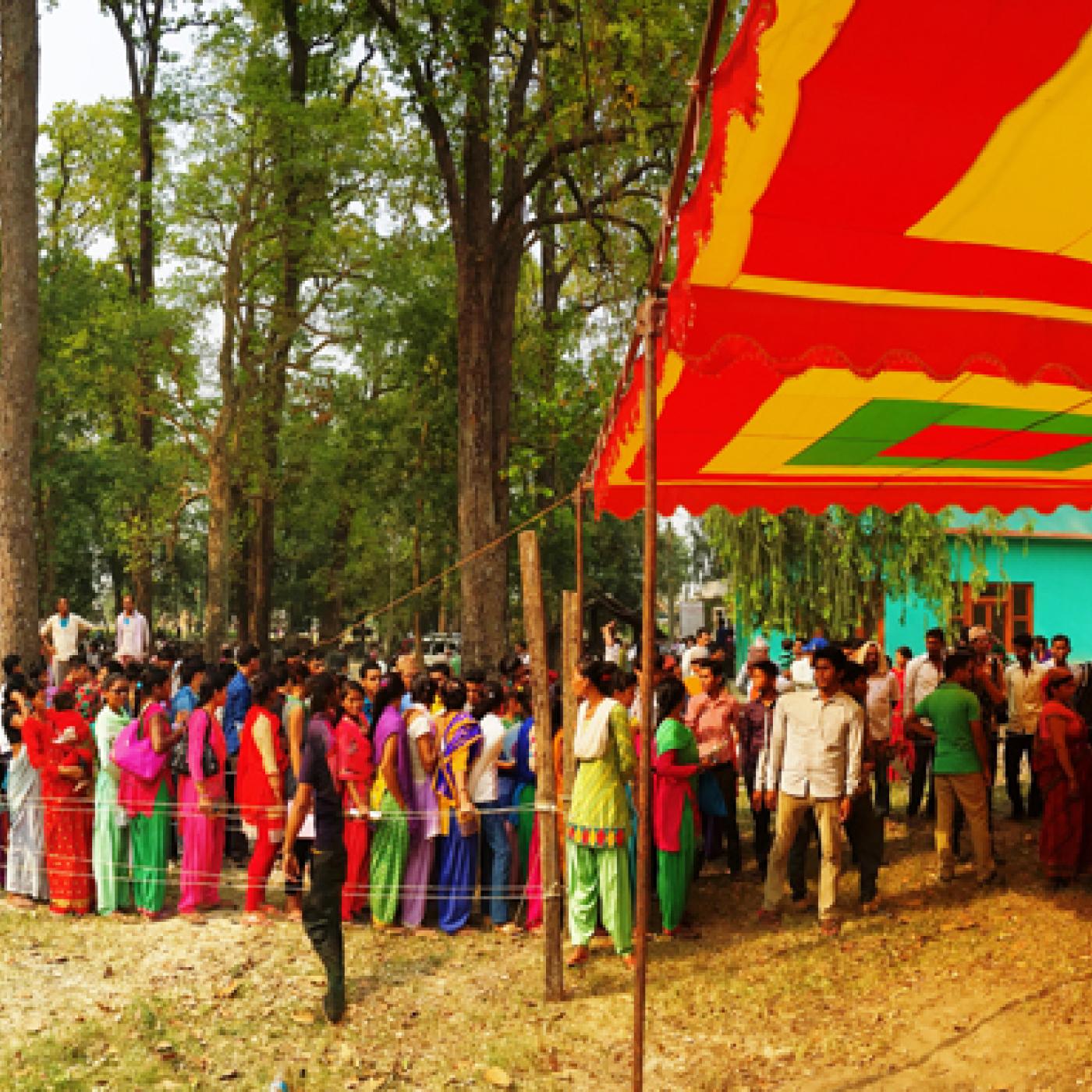Tools & Resources
Filter by
Type
Publication date
Language
Type
Publication date
Language
News & Updates
Feature
Manatt Fellow Presents on Election Dispute Resolution in Africa
In September 2019, IFES Manatt Fellow Tinashe Hofisi presented on presidential election petitions in Kenya, Sierra Leone, Uganda, Zambia and Zimbabwe at the 14th Annual Symposium of the Electoral Institute for Sustainable Democracy in Africa. He highlighted the unique jurisdictional tools available to apex courts in adjudication of presidential elections and their effect on judicial outcomes.
News & Updates
Feature
Manatt Fellow Presents on Presidential Election Petitions in Africa
From October 30-November 1, 2019, IFES participated in the Fourth African Judicial Dialogue in Uganda. IFES Manatt Fellow Tinashe Hofisi presented his paper on presidential election petitions in Kenya, Sierra Leone, Uganda, Zambia and Zimbabwe.
News & Updates
Feature
Photo Gallery: IFES 2016 Photography Contest Winner and Finalists
An image of a person with a disability in India on his way to vote with the assistance of his son was selected as the Grand Prize winner in the International Foundation for Electoral Systems’ (IFES) 2016 Photography Contest. A photo of eager citizens in queue to obtain their citizenship cards and enroll on the Election Commission of Nepal's voter register at a mobile camp in Kailali district, Nepal was selected as the IFES Choice winner of the Photography Contest.
News & Updates
Feature
Taking Stock of Uganda’s 2016 General Elections
On February 18, Uganda held general elections for President and Parliament. This post-election Q&A covers the importance of these elections, IFES’ role in supporting the electoral process, and the political environment and security situation before and during the vote.
Election FAQ
Elections in Uganda: 2016 General Elections
On February 18, Ugandans will vote for President, 290 Members of Parliament who are directly elected to represent 290 constituencies, as well as 112 District Women Members of Parliament. A presidential candidate must receive 50 percent plus one vote to avoid a run-off election. Members of Parliament are elected in single-member constituencies through a simple majority system.
Publication
Report/Paper
Media, Elections and Political Violence in Eastern Africa: Towards a Comparative Framework
A comparative report on post-election violence in Eastern Africa has been released by the Programme in Comparative Media Law and Policy at the University of Oxford, the Center for Global Communications Studies at the Annenberg School, University of Pennsylvania, and the Stanhope Centre for Communications Policy Research.
December 02, 2009
Publication
Report/Paper
Democracy, Economy and Gender In Uganda: A Report of a National Sample Survey
In the run-up to Uganda's referendum of June 2000, a national survey was conducted of a representative cross-section of 2271 adult Ugandan citizens. The survey covered all four regions of the country (northern, eastern, central and western), including 36 of the 45 administrative districts. The purpose of the survey was to assess popular attitudes to democracy, economy, civil society and gender.
October 05, 2000
Election Material
Election and Political Party Law
The Referendum (Political Systems) Act, 2000
The Referendum (Political Systems) Act, 2000
Election Material
Civic Education Material
Papers on Referendum, Politics and Religion
“Papers on Referendum, Politics and Religion” is a booklet that was written in 2000 by Micheal Kaggwa. The literature is composed of three papers: one on religion and politics, one on the referendum and its implication on Uganda’s political development and one on why supporters of political parties should participate in the referendum. The papers seek to enhance voter efficacy towards democratic values and to address the role of religion and religious leaders in Uganda’s political discourse.







